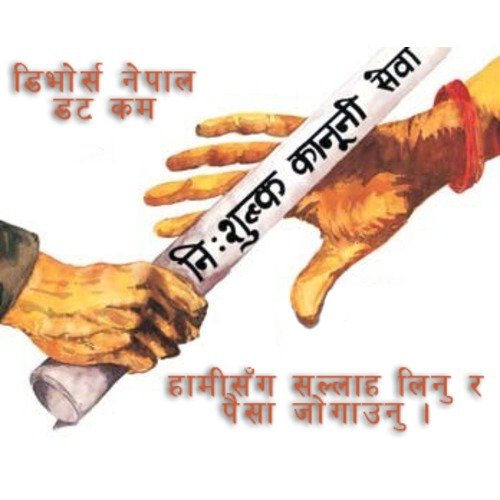Best Debt & Collection Lawyers in Pokhara
Share your needs with us, get contacted by law firms.
Free. Takes 2 min.
List of the best lawyers in Pokhara, Nepal
About Debt & Collection Law in Pokhara, Nepal
Debt and Collection Law in Pokhara, Nepal is primarily governed by the Insolvency Act 2006, Muluki Civil Code 2017, and the Debt Recovery Act 2018, with rules and procedures further defined by the local civil Court Guide 2019. These laws and regulations look after the process of debt collection, the protection of creditors, as well as the rights and obligations of debtors. They promote fair debt collection practices, aiming to balance the rights of creditors and debtors while trying to prevent insolvency.
Why You May Need a Lawyer
Although individuals can represent themselves in debt and collection matters, a lawyer can provide a strategic advantage. Lawyers can help to understand the complicated laws and regulations, and devise effective strategies for debt repayment or collection. They can protect a debtor from harassment or unfair practices of creditors and can also help creditors in effective debt recovery. In situations such as dealing with large debt amounts, facing a lawsuit from a creditor, or filing for bankruptcy, it is highly recommended to seek legal assistance.
Local Laws Overview
The Insolvency Act 2006 provides the legal mechanism to rehabilitate insolvent individuals and businesses. The Muluki Civil Code allows creditors to file lawsuits against debtors for defaulting on their financial obligations. If the creditor wins the case, the debtor has to comply with the decree of the court by paying the debt or risking the seizure of their property. The Debt Recovery Act provides a simpler and quicker way for financial institutions to recover their loans. According to the law, the creditors mustn't harass or use unfair practices while collecting a debt, and a debtor also has the right to dispute a debt that they believe is incorrect.
Frequently Asked Questions
What are the consequences if I cannot pay my debts?
If you can't pay your debts, the creditor can take you to the court. If the court rules in favor of the creditor, they can seize your property or part of your income until the debt is paid off.
Can a creditor harass me for the repayment?
No, according to the laws in Nepal, a creditor cannot use unfair or abusive practices to collect their debts.
How can I dispute a debt that I believe is incorrect?
You can file a complaint or a lawsuit against the creditor if you believe that the debt is incorrect. It's advisable to hire a lawyer to guide you through the process.
Is bankruptcy an option to get rid of debts?
Yes, if you can't pay off your debts, filing for bankruptcy might be an option. It's a complex process and you would need legal advice to proceed.
How can I prevent insolvency?
You can prevent insolvency by managing your finances effectively, paying your debts on time, and if needed, renegotiating your debts with your creditors.
Additional Resources
The Insolvency Act 2006, the Debt Recovery Act 2018, and Muluki Civil Code 2017 are the primary resources and legal texts on debt and collection law in Nepal. Nepal Rastra Bank, the central bank of Nepal, also provides information about financial institutions and laws related to them.
Next Steps
If you need legal assistance in a Debt & Collection case, the first step would be to consult with a lawyer. They can provide you with personalised advice based on your situation and guide you through the process accordingly.
Lawzana helps you find the best lawyers and law firms in Pokhara through a curated and pre-screened list of qualified legal professionals. Our platform offers rankings and detailed profiles of attorneys and law firms, allowing you to compare based on practice areas, including Debt & Collection, experience, and client feedback.
Each profile includes a description of the firm's areas of practice, client reviews, team members and partners, year of establishment, spoken languages, office locations, contact information, social media presence, and any published articles or resources. Most firms on our platform speak English and are experienced in both local and international legal matters.
Get a quote from top-rated law firms in Pokhara, Nepal — quickly, securely, and without unnecessary hassle.
Disclaimer:
The information provided on this page is for general informational purposes only and does not constitute legal advice. While we strive to ensure the accuracy and relevance of the content, legal information may change over time, and interpretations of the law can vary. You should always consult with a qualified legal professional for advice specific to your situation.
We disclaim all liability for actions taken or not taken based on the content of this page. If you believe any information is incorrect or outdated, please contact us, and we will review and update it where appropriate.








